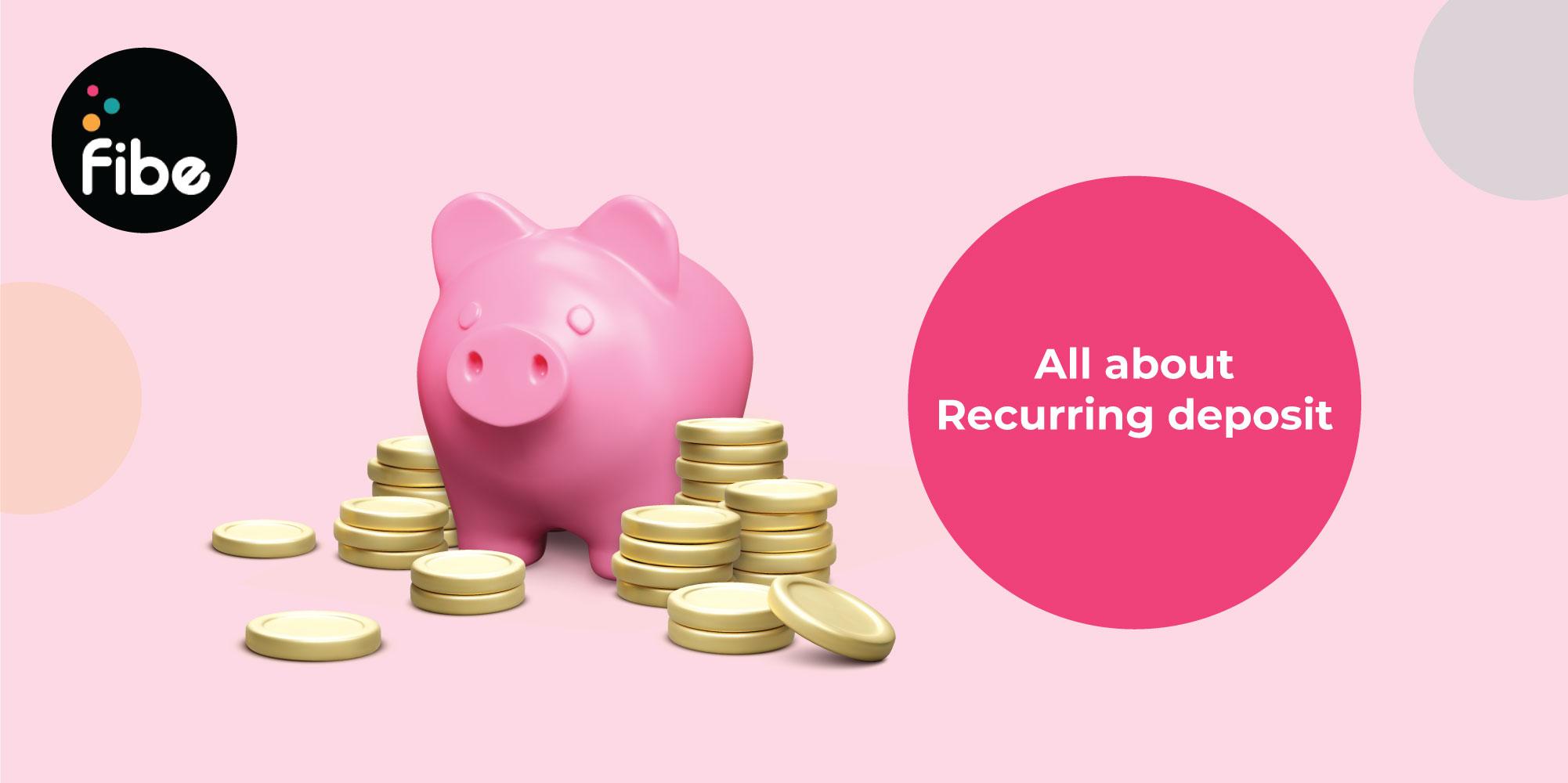- Home
- Blogs
- Recurring Deposit
- What Is Recurring Deposit
Recurring Deposit Account: Opening Process & Advantages of RD
Reviewed by: Fibe Research Team
- Updated on: 17 Jun 2025
Reviewed by: Fibe Research Team

An RD instalment is the regular payment you make towards this traditional and risk-free investment. Offered by banks, a recurring deposit account requires you to invest a fixed amount every month. This allows you to earn monthly interest and access it at maturity.
A secure investment, an RD allows you to grow your wealth just like an FD. It is most suitable for investors with a low-risk appetite. Read on to know what is recurring deposit is the benefits of an RD account and more.
When you open an RD account with any bank or NBFC, you set an investment amount and date. The said amount will be debited periodically from your existing savings or current account for the chosen tenure. This tenure usually starts from 3 to 6 months and goes up to 5 to 10 years.
With a recurring deposit scheme, you earn an interest on your investment, similar to a fixed deposit. However, where an FD requires a lump sum investment, you can invest with ease in smaller amounts periodically with an RD.
Also Read: Best banks for savings accounts in India
To better understand what is RD account, learn about some of its key features below.
Here are some key RD benefits to keep in mind before you get started.
To maximise your RD benefits, choose the highest interest rates. Take a look at the latest RD interest rates:
| Bank | Rate of Interest for Regular Citizens | Rate of Interest for Senior Citizens |
|---|---|---|
| Axis Bank | 5.75% – 7.10% | 6.25% – 7.75% |
| HDFC Bank | 4.50% -7.10% | 5.00%- 7.75% |
| ICICI Bank | 4.75% – 7.10% | 5.25% – 7.60% |
| IndusInd Bank | 7.00% – 7.85% | 7.75% – 8.25% |
| Kotak Mahindra | 6.00% – 7.20% | 6.50% – 7.70% |
| Yes Bank | 6.10% – 7.50% | 6.60% – 8.00% |
Keep in mind that these rates are current as of October 2023 and are subject to change as per the bank’s policy. Based on the prevailing rates, you can book your RD with ease.
Also Read: How to get bank statement online
You can open an RD account online by logging into your net banking account or your mobile banking app. Usually, you will find the option to open an e-RD account under investments. By providing your deposit amount, date and tenure, you can book your RD account in minutes. If you prefer to go the offline route, you can visit the nearest branch of your bank.
If you have an urgent need for funds in the midst of paying your RD instalments or when you have funds locked into other investments, look for a feasible alternative. Rather than taking loans against your investments or liquidating them prematurely, consider Fibe. Cover umpteen personal expenses with the Fibe Instant Personal Loan and get up to ₹5 lakhs hassle-free. Register now on the Fibe Personal Loan App or website and get started.
With an RD account, you invest a certain sum at regular intervals from your savings or current account. Banks add your interest earnings to your RD account, so you can grow your savings and access them at maturity.
RD in a bank stands for a recurring deposit, where your periodic deposits in an account earn interest. It is a safe investment option and does not require you to have a ready lump sum to invest in one shot.
Yes an RD is beneficial. With an RD account, you can earn interest on your regular investment in a safe and secure manner based on the interest rate at the time you start.
The function of recurring deposits is to help you build a habit of savings and earn interest on your investment.
No, you cannot withdraw funds from your recurring deposit account before the tenure matures.
HDFC Bank, IndusInd Bank, ICICI Bank, Axis Bank and Yes Bank are some of the banks offering an interest of 7% or more on RDs. However, the interest depends on the tenure and your age, so check this carefully before you invest.